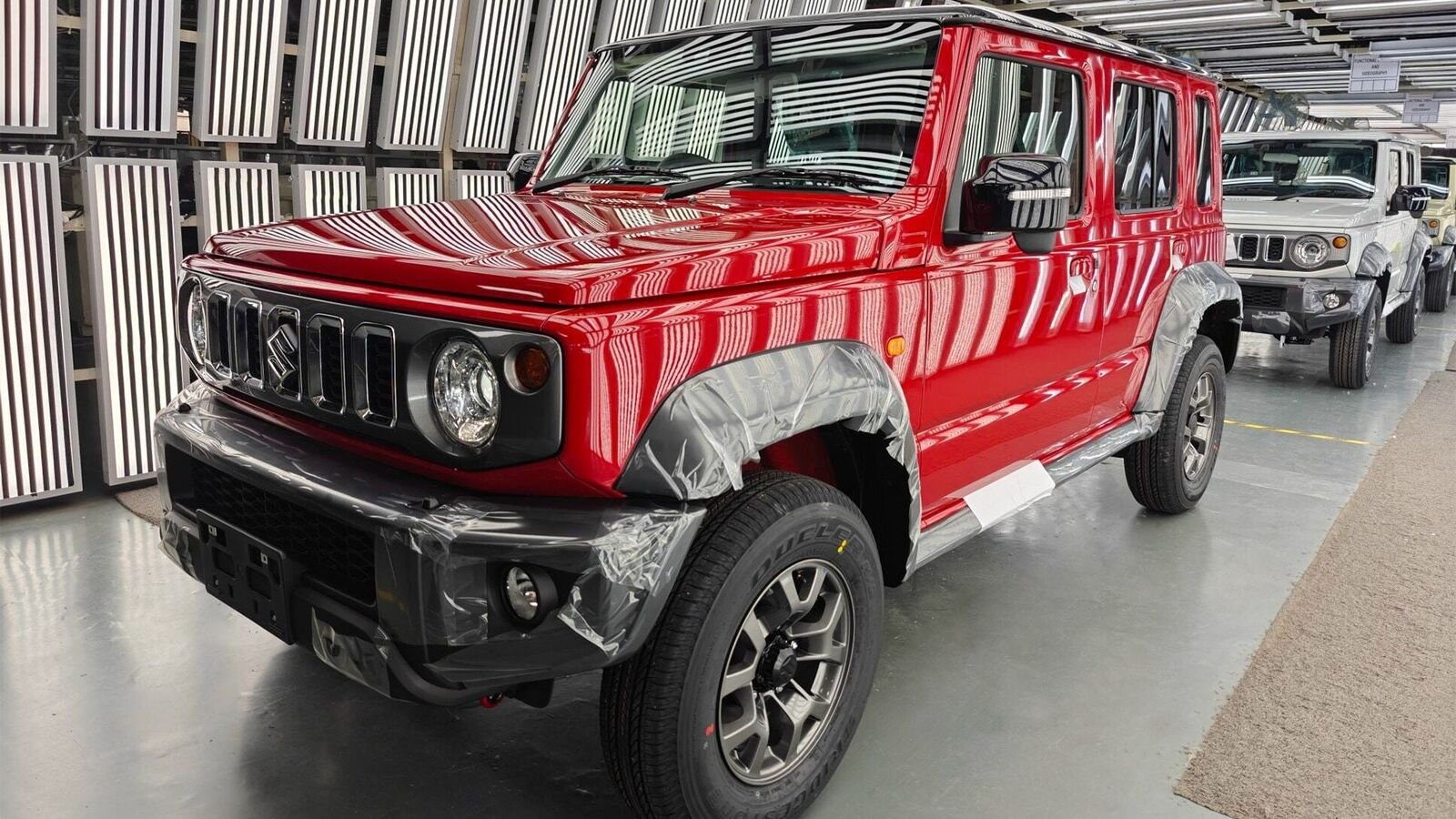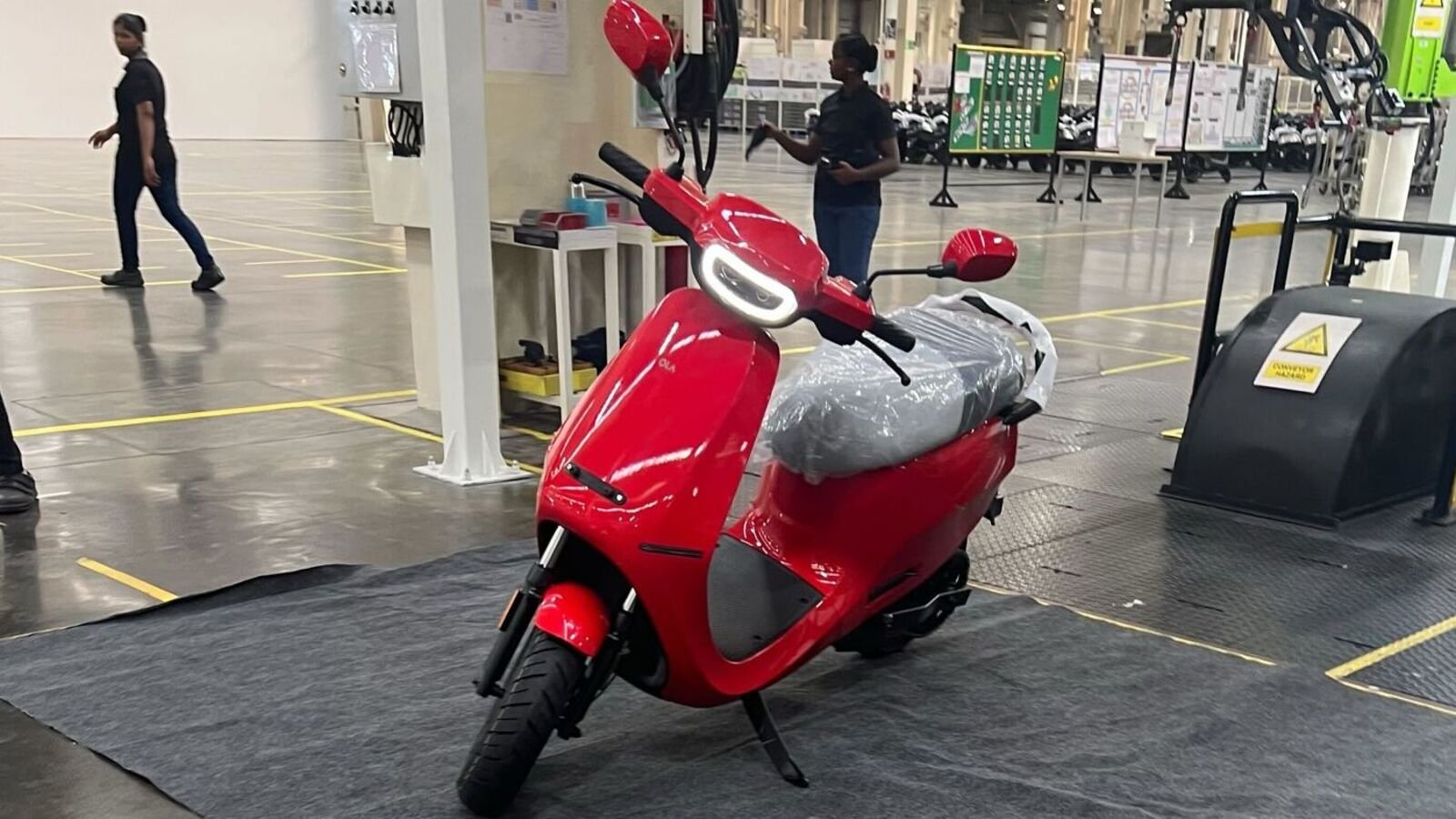- Unpacking how the Vietnamese EV maker intends to tackle India’s increasingly competitive premium and luxury EV space.
VinFast India finally took the wraps off its first electric offering in India – the VF7 SUV. The Vietnamese EV manufacturer which signed an MOU with the Tamil Nadu Government with an investment of ₹4000 crore, is still in the process of completing the construction of its integrated EV and battery plant in Thoothukudi, Tamil Nadu. “We intend to finish construction by the end of the first half of this year or the beginning of the second half and then we will launch our car,” says Pham Sanh Chau, CEO of VinFast Asia. The car in question is the VF7, an all-electric, 5-seater SUV featuring a large 75.3 kWh battery pack which, when outfitted with dual motors makes 348 bhp and 500 Nm of torque. “We don’t just want to sell our cars. We want to build a complete infrastructure.
Suggested watch: VinFast arrives in India | VF 6, VF 7 electric SUVs unveiled | Range, features | Auto Expo 2025
Upon the completion of the factory, the VF7 will be launched as a completely knocked down car, which will then be assembled in India. At present VinFast is a very nascent stage of its India operations and have not yet ascertained what level of localisation they can achieve or which components need to localise on priority. As part of its strategy to position itself as a premium EV maker, the brand has chosen to launch the VF7 first. “We want to target the high end of the middle class, which can afford these cars” says Chau, a former diplomat. He also stated that VinFast is considering partnering-up with a charging service although the brand hasn’t finalised on any names yet. “We have our company V-Green in Vietnam where we have installed 120,000 charging guns. In Indonesia, our target is 100,000 guns and in India, after the launch of the VF7, our V-Green people will come in here and inspect it. It will be a separate company. Twenty years from now there will be no gas stations.”
Also Read : Complete coverage of Auto Expo 2025
A Vin-ning strategy?
Although the manufacturer is operating in 12 countries, across 3 continents, India is the third country, after Vietnam and the United States, to get its dedicated plant. According to its MoU with the Tamil Nadu government, VinFast will invest ₹4000 crore over the next five years, generating approximately 3500 jobs in the process. The plant, once operational, is to have an annual production capacity of 150,000 vehicles, which will also be exported to international markets. The brand has built a reputation for rapidly setting-up manufacturing plants and has also begun construction on a new assembly plant in Indonesia. Chau claims that Indonesia and India are the plants that will cater to right-hand drive markets with Indonesia focusing on Southeast Asia while India will cater to domestic demand and demand in the Middle East and Africa.
Upon completion of the factory however, in the first phase of development, the plan will have a capacity of 50,000. “We will refrain from projecting any number volume because we are still studying the domestic market” says Ashwin Patil, the Deputy CEO of VinFast India.
As per India’s EV policy, a foreign manufacturer must commit to investing at least $500 million ( ₹4000 crore) and set up a plant within three years. Although the policy was announced after VinFast had made its investment and begun construction of its plant, the brand is hopeful that it will be able to avail the policy’s benefits and possibly look at importing CBU models with lowered import taxes of 15%. “We are still looking at how we can benefit from that scheme,” said Chau. “Currently we are seen as a brownfield investment (a term used for a company purchasing or leasing an already existing facility as opposed to investing in building one from scratch. It’s a technical distinction that could possibly exclude VinFast from importing over 8000 EVs for 5 years, and gauging demand). However, Chau acknowledges that the Ministry of Heavy Industry has been very supportive and remains hopeful. “I think that in any country, the federal government will find a way to support new entrants, right? We bring investment, we bring funding, we bring great jobs, technology and heavy localisation”
Battery Subscription plan and more
When asked about the brand’s key differentiator, Mr Chau stated that apart from having a lot of premium features, they will also offer a 10 year warranty and are considering a battery leasing and subscription plan. When asked about the efficacy of a subscription plan in the premium and luxury space, where buyers aren’t as price conscious and prefer full ownership of the battery, Patil said that it is a model that has been successful in Vietnam. When asked about leasing and buybacks, Patil said that “battery leasing may not address the issue of residual value. What we want to do is offer better warranties and make the operational costs less to mitigate the concern around resale. Patil confirmed that the VF7 will be available for pre-booking before the festive period begins.
Chau promises that 2025 is the first phase in what is a very long-drawn plan. “We (VinGroup) are the largest private conglomerate in Vietnam” says Chau confirming that the ₹4000 crore investment is in-line with the company policy to manufacture batteries in-house and only then fall back on international partners.
(Parth Charan is an independent automotive journalist and writer who has written on cars, motorcycles and the automotive industry for the past 12 years. He lives in Mumbai.)
Check out Upcoming EV Cars in India, Upcoming EV Bikes in India.
First Published Date: 18 Jan 2025, 17:28 PM IST



